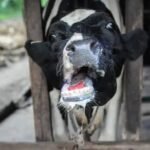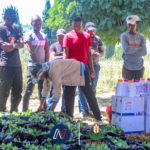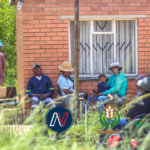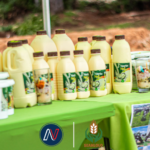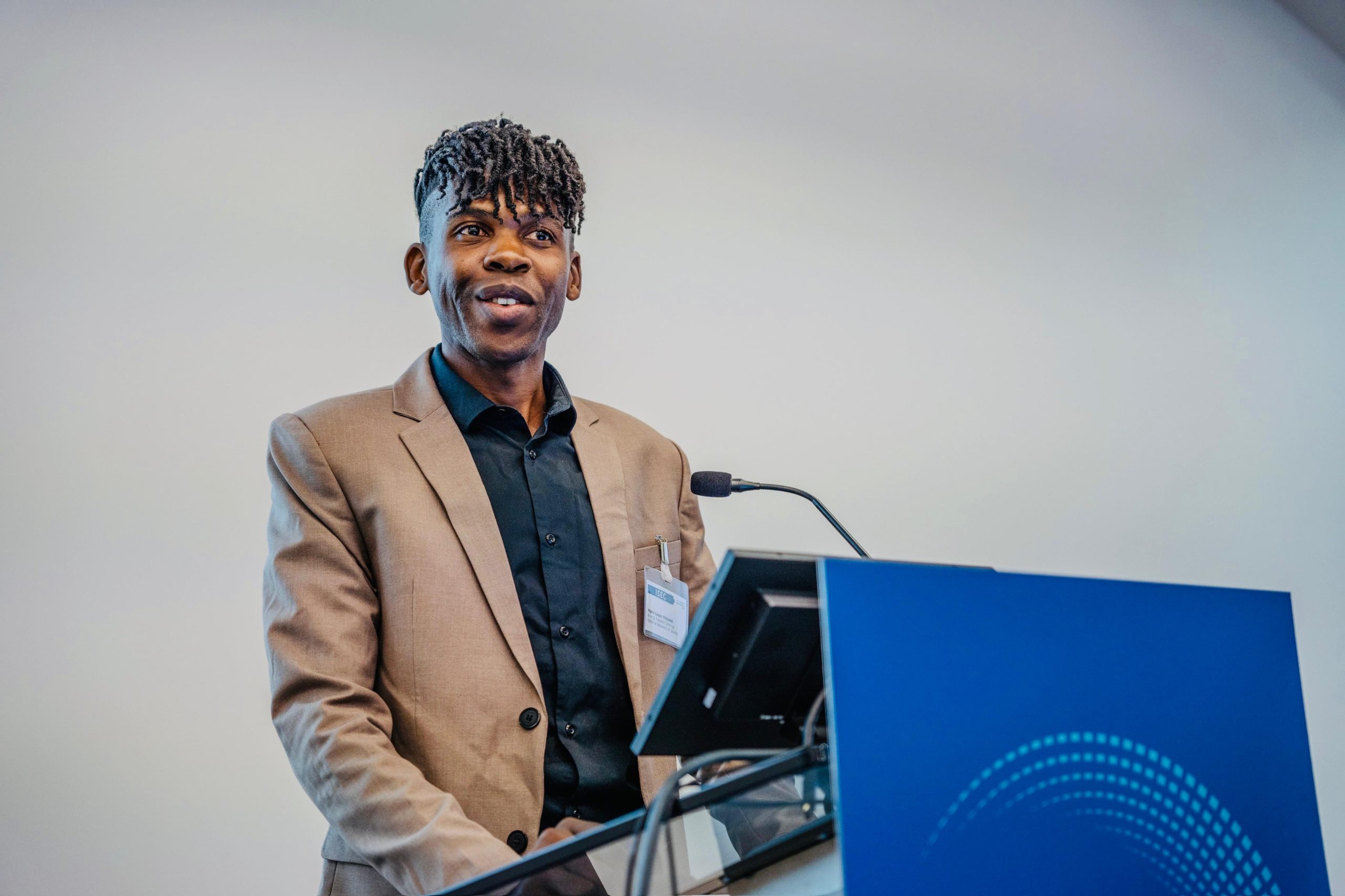In a world pushing for clean and affordable energy solutions, innovation has become the backbone of progress.
Since the adoption of the Sustainable Development Goals (SDGs) in 2012, global efforts have been focused on fostering solutions that address critical issues like food security and energy efficiency.
One such trailblazer making waves in Lesotho is Mpho Yengane, a young electrical engineer whose ground-breaking cooling system is set to revolutionise the agricultural cold chain.
At just 29 years old, Yengane has defied convention with his cutting-edge solar-powered cooling system designed to preserve fresh fruits and vegetables.
His journey began as a Master of Science student in Sustainable Energy at the National University of Lesotho (NUL), where he focused his dissertation on a solution that could significantly reduce post-harvest losses.
Born and raised in Teya-Teyaneng, Ha-Motjoka, Yengane grew up acutely aware of energy struggles and environmental challenges.
“I have always been conscious of sustainability,” he reflects, adding, “Littering never made sense to me, and I was fascinated by how human behaviour impacts the environment.”
His dissertation, titled Design and Economic Analysis of a Solar Thermal Pre-Cooling System for Agro-Cold Chain in Lesotho, co-authored by Sebota Mokeke and Moeketsi Mpholo, aimed to tackle the longstanding challenge of post-harvest losses among small-scale farmers.
The innovative solar-powered system—officially known as Solar Thermal Cooling (STC) technology—uses solar energy to heat a special fluid that powers a chiller, creating a cooling effect.
The team repurposed a shipping container as the structure for their prototype, utilising solar collectors to harness sunlight and convert it into thermal energy.
“The heat is then transferred to a working fluid, a combination of water and lithium bromide, which absorbs and transports the heat to the generator of an absorption chiller. Through a controlled process of evaporation and condensation, the system effectively cools stored produce, ensuring its freshness and longevity,” Yengane explained.
To turn research into reality, Yengane co-founded Energy Reimagined alongside his business partner, Falimehang Rameno, a 26-year-old NUL alumnus with a Master of Science in Agricultural and Resource Economics.
He described that their mission is clear: “provide innovative and accessible cold storage solutions to farmers, many of whom lack the means to invest in traditional cooling infrastructure.”
“An estimated 30% to 40% of horticultural produce is lost due to inadequate cold storage facilities,” says Rameno told Seahlolo.
He noted, “Our system offers farmers two options: purchasing the facility outright or renting it at an affordable rate. This ensures that even small-scale farmers have access to cooling technology that extends the shelf life of their produce.”
The impact of Energy Reimagined’s cooling system extends beyond environmental benefits; “it is an economic lifeline for farmers who suffer severe losses due to spoilage. When crops are transported from farms to markets, their shelf life is drastically reduced by exposure to heat and sunlight. This often results in partially or completely spoiled produce, causing significant financial losses,” the duo noted.
According to The African Postharvest Losses Information System (APHLIS), in 2021, Lesotho’s annual estimated postharvest losses were 11,516 tonnes for maize, 1,612 tonnes for sorghum, 947 tonnes for wheat.
The highest and lowest estimated postharvest loss percentages are 15.4% for maize and 11.5% for sorghum.
Within the value chain, for all crops the majority of loss is estimated to be happening at harvesting/field drying. Within Lesotho, the highest postharvest losses in tonnes occur for maize in Leribe, for sorghum in Maseru, for wheat in Mokhotlong. Regarding the nutritional losses, the estimated maize grain lost postharvest could have met the annual energy (kcal) dietary requirements of 46,209 people.
Thabo Khalema of Maluti Fresh Produce emphasises the need for proper post-harvest handling.
“Investing in high-quality seeds is only part of the equation,” he says.
He added, “Without proper cooling systems, farmers risk losing a substantial portion of their harvest before it even reaches consumers.”
Although still in its prototype phase, the solar cooling system has already garnered significant interest from farmers eager for sustainable storage solutions.
However, to scale up and deploy the technology, the young entrepreneurs are actively seeking funding to launch a market-ready pilot project.
“This system functions entirely off-grid, making it suitable for both commercial and subsistence farmers. Although commercial farmers are our primary target, we recognise that affordability is a key concern,” Yengane said, noting while the initial cost may be high, the long-term benefits—reduced post-harvest losses and increased profitability—far outweigh the investment.
The inventor described that The Solar Thermal Cooling (STC) system has significant advantages over conventional cooling technologies.
“While traditional refrigeration systems have lower upfront costs, they require continuous electricity and entail high operating expenses. In contrast, STC technology has a higher initial cost but boasts significantly lower long-term expenses and zero greenhouse gas emissions. The system requires minimal maintenance—once every five years—and has a lifespan of 30 to 50 years. Crucially, it does not require highly specialised technicians for upkeep, making it an accessible and user-friendly innovation.”
“This system is designed to be intuitive. Both farmers and solar technicians can easily understand and maintain it. It’s not an intimidating technology—it’s a practical, game-changing solution,” he pointed out.
Determined to push the boundaries of renewable energy, Yengane has since enrolled in a PhD program in Electrical Power Systems at Stellenbosch University, where he is exploring the feasibility of running entire grids on renewable energy alone.
“My ultimate goal is to contribute to the transition away from coal and fossil fuels,” he asserts.
“As much as coal remains a predictable energy source, we must invest in alternative solutions that align with environmental sustainability,” he charged.
Through their company, Energy Reimagined, Yengane and Rameno are committed to advancing three key SDGs: SDG 1 (No Poverty), SDG 2 (Zero Hunger), and SDG 7 (Affordable and Clean Energy). Their work is driven by impact, ensuring that innovation serves both people and the planet.
The duo’s expertise is gaining international recognition, with Yengane recently presenting his master’s dissertation at a European conference and Rameno attending regional forums focused on food security and economic development.
Their combined skills—engineering innovation and agricultural economics—bridge the gap between research and practical implementation, ensuring their cooling system is both scientifically robust and commercially viable.
What makes their STC system stand out is its remarkable efficiency. Unlike conventional cooling methods, which typically operate at 20-40% efficiency, this solar-powered system captures up to 98% of sunlight and achieves an operational efficiency of 60-70%. This means it is not only more sustainable but also ideal for off-grid locations, such as rural farming communities in Lesotho.
As they continue their quest for funding and commercial expansion, Yengane and Rameno said they remain unwavering in their belief that their innovation will transform the agricultural landscape in Lesotho.
“Farmers are already anticipating the deployment of the system, eager to see how it will reshape their productivity and income streams. Our farmers deserve better and we want to give them the tools to preserve their hard-earned harvests, reduce waste, and ultimately, improve their livelihoods,” the duo asserted.


